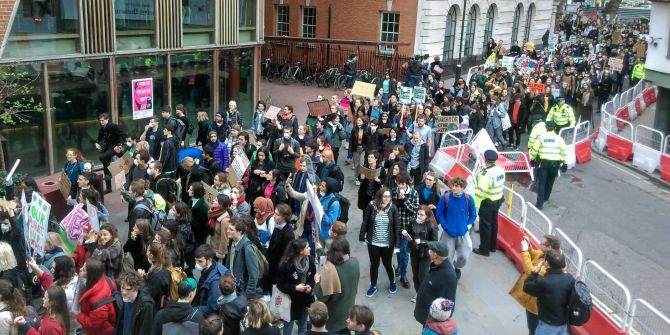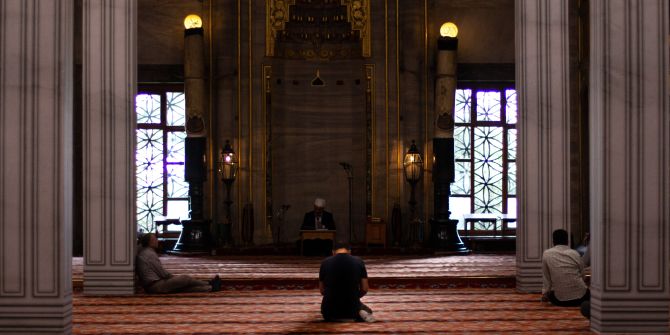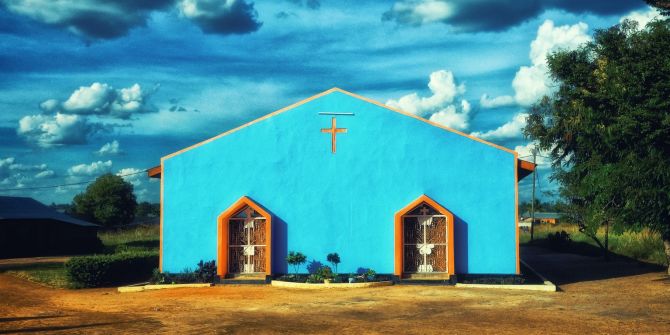On Earth Day 2020, Shilpita Mathews reflects on how the coronavirus pandemic, and the radical responses to it, can better prepare us to address the climate crisis. Drawing on sources of spirituality, she sees hope in the countless examples of solidarity we are witnessing and a way forward for future climate action.

But ask the animals, and they will teach you,
or the birds in the sky, and they will tell you;
or speak to the earth, and it will teach you,
or let the fish in the sea inform you.
Which of all these does not know
that the hand of the Lord has done this?
In his hand is the life of every creature
and the breath of all mankind.
Job 12:7-10
In the wake of COVID—19, environmental commentators have been busy forecasting the future. Others are asking, is this “nature’s wake-up call to civilisation”? Amid the chaos of outward predictions, there is a need for inward reflections on the coronavirus pandemic, climate, and the deep-rooted crisis within us. It is hoped that these values, can inform and inspire our response to climate change.
Shared fallibility
Pandemic Influenza is listed as the high consequence risk with the greatest impact in the UK National Risk Register, the government’s strategic framework for national security risks. Despite this, the most shocking aspect of the COVID—19 crisis is how underprepared global governments were to respond to it. The cracks in the system have revealed the false sense of security in which our society operates. Yet, ignoring the scientific evidence, politicians remain in denial.
This has alarming parallels with the climate crisis. Despite the overwhelming scientific evidence, climate change ranks low in the priorities of many decision-makers. As Christiana Figueres, former Executive Secretary of the UN Framework Convention on Climate Change (UNFCC) contests, prevention is better than the cure. While the pandemic has intermittently halted climate movements, is this a call to expedite climate action? This is as much a societal question as an individual one.
Shared culpability
The stench of consumerism reeks in the aftermath of global stockpiling. Most consumers are coming to terms with the inessential materialism their lives are built upon. As shoppers hoard essentials, many middle-class households in the West, for the first time in their lifetimes, are reflecting on Mahatma Gandhi’s famous quote, “the world has enough for everyone’s need, but not enough for everyone’s greed”.
It is a stark reminder that the climate crisis requires a change of hearts as much as a change in policies. Could this reform of capitalist institutions reduce the exploitation of our planet? Will it herald an era of not just changed consumption but reduced consumption, as called for by Rowan Williams, former Archbishop of Canterbury? While this may be a feasible option for the privileged in our societies, COVID—19 demonstrates that global crises hit the poor the hardest.
Shared humanity
Coronavirus is exacerbating inequality within countries. It also risks increasing inter-country disparity, as policymakers foresee devastating impacts in developing countries. Finally, the virus has caused an inter-generational fracture in society. While the elderly remain the most vulnerable, the young have had to be warned “they are not invincible”, as many continue to defy social-distancing measures. The need for social distancing has made us realise our interdependence, and how individual actions have social ramifications.
Our present health crisis validates not just human interconnectivity but planetary interconnectivity, as our ecosystems and climate reach tipping points. It also illustrates that climate risk is ultimately about environmental justice, witnessed in the plight of island states, like Tuvalu, that are at the forefront of the crisis. Stark parallels can be drawn between calls for debt forgiveness of developing countries given the economic impacts of COVID—19, and calls for climate adaptation financing in these countries. Intergenerationally, our children are going to face the worst impacts of natural disasters. We are reprimanded in Greta Thunberg’s voice, “how dare you?” As our hearts search for an adequate response, Ernst F. Schumacher’s quote in Small Is Beautiful comes to mind: “Wisdom demands a new orientation of science and technology toward the organic, the gentle, the elegant and beautiful”. While our societal response to climate change remains unsatisfactory, it has been a beacon of light in recent days to witness communities coming together to respond to COVID—19.
A shared call to action
Communities of diverse beliefs and backgrounds are drawing together to serve the most vulnerable and to encourage each other. Moreover, most individuals in lockdown are increasingly appreciative of natural beauty, longing to spend time outdoors. As our vulnerabilities are exposed, COVID—19 is a sobering reminder of our place in the planet. As socio-economic institutions crumble, with cities being worst hit by the pandemic, our conceited sense of superiority over nature is exposed.
While we are in the eye of the storm, Rabbi Jonathan Wittenberg poignantly illustrates in Saying Yes to Life by Ruth Valerio, “God’s voice in nature is ceaseless and enduring”. How is He speaking to each one of us today? As we see citizens around the world unite in solidarity, will each person play their part in the climate crisis?
Shared hope
As COVID—19 affects our health, it is a grave reminder of suffering, loss and our common grief. As many have recently celebrated Passover, Easter and other religious festivals, we are paradoxically reminded that there is a time for everything, “a time to be born and a time to die, a time to plant and a time to uproot” (Ecclesiastes 3:1-2). In this desperate global tragedy, which is damaging our physical and mental health, what values are we planting, and what values must we uproot?
In these anxious times, I have found it a humbling, opportune, and undeniably privileged time for self-introspection. Spending more time reflecting on the climate crisis has renewed my sense of hope.
The growing momentum within society, from the climate heroism of youth grassroot movements to net-zero targets set by governments and businesses, demonstrates that while crises can uproot us, we can plant ourselves on firmer ground. This starts with sowing values like loving our neighbours and loving our planet. It is an assurance that even in this season of darkness there is much to celebrate.
Will the COVID—19 pandemic lead to a fundamental change in our relationship with the environment? While it is tempting to speculate, I will leave these questions hanging in the newfound, clean air.
Note: This piece gives the views of the author(s), and not the position of the LSE Religion and Global Society blog, nor of the London School of Economics.





2 Comments